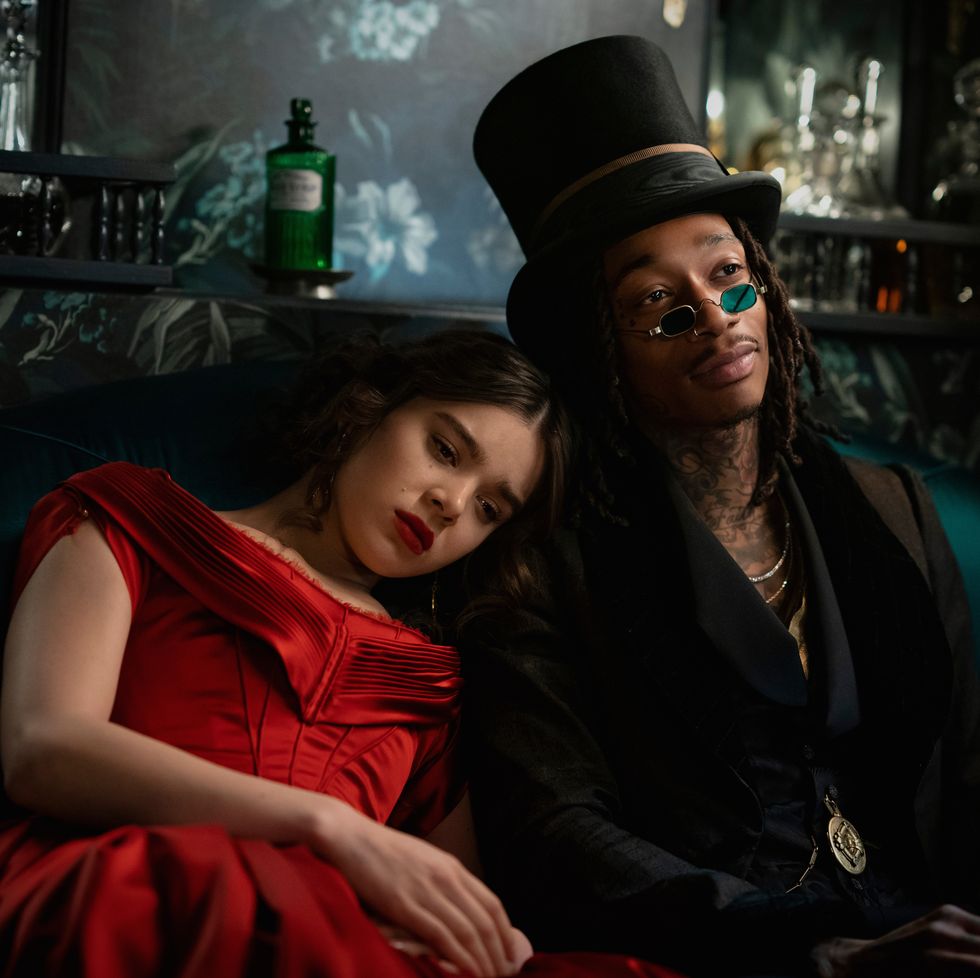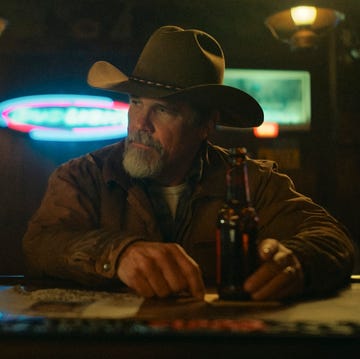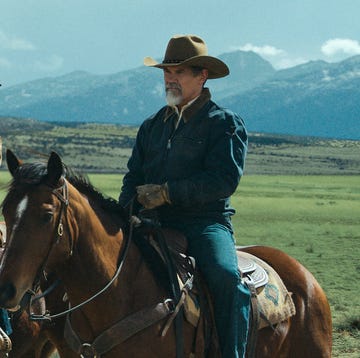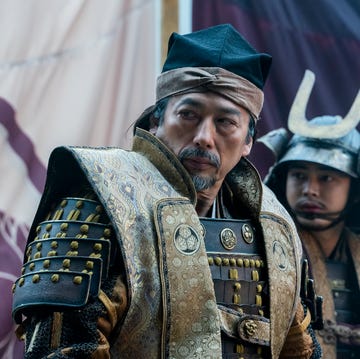I tried not to be a stodgy literary purist about Apple TV+’s Dickinson—I really, truly did. But reader, when Austin Dickinson described his new home as “so pimp,” I lost it. Dickinson stars Hailee Steinfeld in the titular role, bringing infectious brio and charisma to a spirited, theatrical teenage interpretation of the infamous poet. Steinfeld’s Dickinson is irreverent, flippant, lustful—a fast-talking, rebellious teenager straining at the seams of her provincial life in small-town Massachusetts. Her chief tormentor is the nineteenth-century patriarchy, as embodied by her mother (Jane Krakowski, a tartan-clad whirl of housework and arranged marriages) and her father (Toby Huss, a stern academic who demands that his daughters become dutiful homemakers). Rounding out the Dickinson family are Emily’s sister Lavinia, who excels at housework but remains deeply weird in her own right, and her brother Austin, a caddish twenty-something failing upward into the landed gentry. Austin is affianced to Sue, Emily’s orphaned best friend and secret lover, who feels torn between her deep affection for both Dickinsons, as well as the financial reality of needing to make an advantageous match to lift herself from poverty.
Dickinson doesn’t know what it wants to be. It’s a muddled mess of tones and tropes—part splashy CW teen soap, part literary revisionism, part queer romance, part goth girl adventure. Its flights of fancy are tonally jarring—take Wiz Khalifa’s appearance as a seductive embodiment of death himself, who pulls up to the stately Dickinson homestead in a spectral carriage to whisk a besotted Emily away. When Dickinson’s parents are out of town for the night, leaving her in the clear to throw an opium party for a motley crew of sullen local teens, she dances to an incongruous needle drop with a giant, hallucinated bee, voiced by the deranged-as-ever Jason Mantzoukas. Across the parlor, Lavinia’s suitor sweeps her into a passionate embrace, saying lustfully, “You look hella ripe.”
As for the adults, they’re operating in a different show entirely, carrying on with the stately decorum one would expect from a costume drama. The internal logic of the show simply doesn’t hold up—why are some characters as time-warped as Dickinson, yet others are bound by period conventions and period morality?
Though biographies of Dickinson make her life seem small, confined to one solitary bedroom, her interior life was boundless. Recent scholarship suggests that she wasn’t the virginal spinster depicted in our literary canon—in fact, she lived a quietly transgressive life, shunning the local sewing society, eschewing marriage, opting out of organized religion, and harboring erotic feelings for her sister-in-law. Certainly she was a more proper and domestically capable person than the show suggests—unlike Steinfeld’s Dickinson, the real Dickinson loved to bake—and she also had a flair for the morbid, drowning “superfluous” kittens in barrels of pickle brine. Yet it was in her poetry where Dickinson was at her most transgressive, bursting with formal daring and an electric, accessible extremity of feeling. That Dickinson is missing here.
Perhaps the true downfall of Dickinson is that Steinfeld’s Dickinson isn’t as whip-smart as the real poet behind her. This Dickinson is petulant, snide, overwrought—like any teenager, to be certain, but it’s hard to believe that these extraordinary poems could come from someone so immature. The treatment of Dickinson’s poetry itself is ham-fisted and oversimplified, lazily rooted in obvious, cringe-worthy metaphors that correspond to the day-to-day events of her life. Dickinson had the potential to be dark, gothic, and twisted, a smart teen show about a young woman significantly ahead of her time, yet Apple took the path of making her a stereotypical teenage girl, albeit one with a flair for darkness—and if anyone shouldn’t be a stereotype, it’s Emily Dickinson. Instead, Dickinson is a clashing din of dissonant elements, a show that belittles the real Dickinson by forcing the fictional Dickinson to drag herself screaming across the floor upon getting her period.
Don’t get me wrong—I’m not opposed to historical revisionism on film. But watching Emily Dickinson twerk is something I just can’t unsee. The girl who drowned kittens, baked bread, and wrote once-in-a-lifetime poems contained multitudes—and she deserved better.













